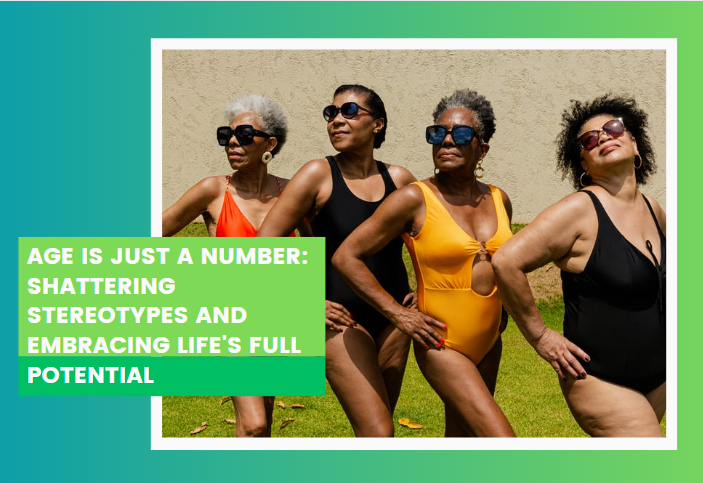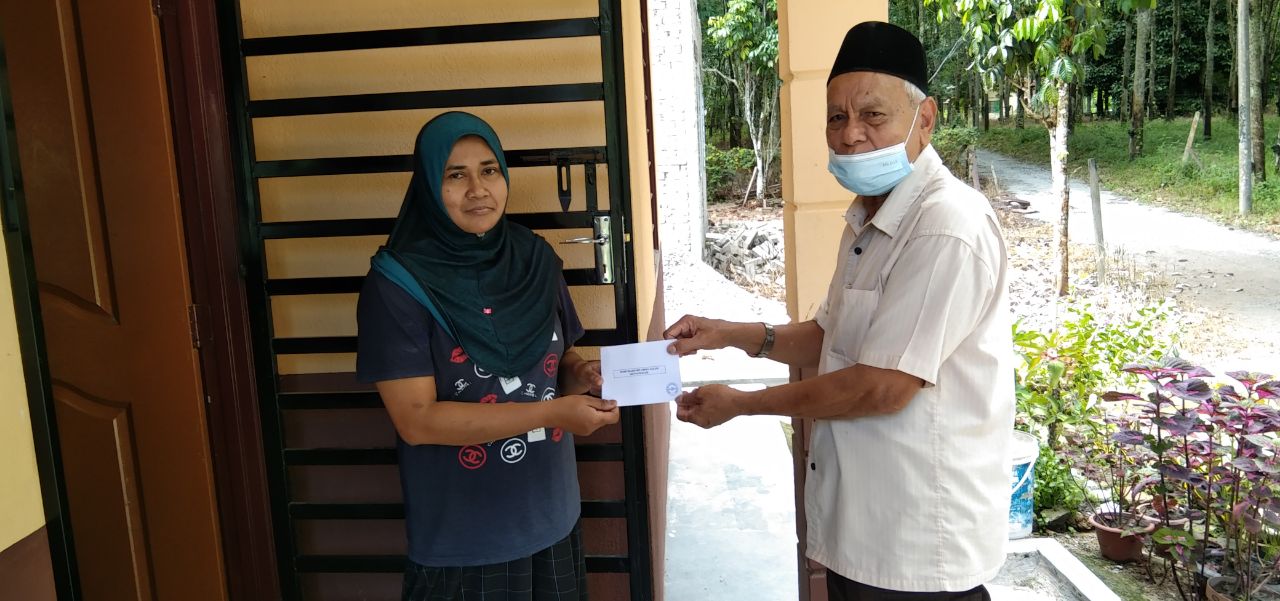Is Age Just A Number? Challenging Ageist Stereotypes And Assumptions

Table of Contents
The Societal Construction of Age and its Impact
Our perceptions of age aren't inherent; they're largely shaped by societal norms and expectations. These culturally constructed ideas about aging often lead to negative stereotypes that significantly impact older adults' lives. The consequences of ageism are far-reaching and detrimental, affecting everything from self-esteem and opportunities to overall well-being.
- Examples of ageist stereotypes: Media frequently depicts older adults as forgetful, grumpy, or burdensome, while the workplace may subtly (or overtly) favor younger candidates, overlooking the vast experience and skills of older workers. Even healthcare can be affected, with older patients sometimes receiving less attentive care due to unconscious biases.
- Impact on mental and physical health: Ageist stereotypes can lead to lower self-esteem, feelings of isolation, and depression among older adults. The stress associated with age discrimination can also negatively impact physical health, potentially increasing the risk of chronic illnesses.
- Economic disadvantages: Age discrimination in employment leads to financial hardship for many older adults, hindering their ability to maintain their independence and quality of life. This economic inequality further exacerbates the negative impacts of ageism.
Challenging Ageist Stereotypes about Physical and Cognitive Abilities
A common misconception is that physical and cognitive decline are inevitable aspects of aging. However, the reality is far more nuanced. Individual experiences of aging vary enormously, and many older adults maintain vibrant physical and cognitive abilities well into their later years.
- Successful aging and active lifestyles: Countless examples demonstrate that older adults can remain physically active, mentally sharp, and deeply engaged in life. Regular exercise, a balanced diet, and cognitive stimulation are crucial factors in maintaining health and well-being throughout life.
- The importance of proactive health: Research increasingly emphasizes the role of lifestyle choices in influencing the aging process. While some age-related changes are unavoidable, many aspects of health can be significantly improved through proactive measures.
- Challenging the narrative of inevitable decline: Studies consistently show that many older adults maintain excellent cognitive function, and physical decline is not uniform across individuals. This emphasizes the crucial need to shift away from generalizations and embrace the diversity of aging experiences.
Celebrating the Value and Wisdom of Older Adults
Instead of focusing on perceived limitations, we need to acknowledge and celebrate the immense value and wisdom that older adults bring to society. Their life experiences, accumulated knowledge, and unique perspectives are invaluable resources.
- Significant contributions in various fields: Older adults have consistently made significant contributions to science, the arts, business, and many other fields. Their experience and wisdom are essential for innovation and progress.
- Mentoring and knowledge transfer: Intergenerational connections are vital, allowing younger generations to benefit from the accumulated knowledge and experience of older adults. Mentorship programs and opportunities for knowledge transfer are crucial for fostering societal growth.
- Age-friendly communities and workplaces: Creating environments that are welcoming and inclusive of all ages is vital. This includes accessible public spaces, age-friendly workplaces that value experience, and supportive social networks.
Combating Ageism: Practical Steps for Change
Combating ageism requires a multi-pronged approach involving both individual actions and systemic changes. We all have a role to play in challenging ageist attitudes and behaviors.
- Challenging ageist jokes and comments: Being mindful of our language and actively challenging ageist jokes and stereotypes is crucial. Speaking up against ageist remarks normalizes the conversation and promotes awareness.
- Advocating for policies that promote age equality: Support legislation and policies that combat age discrimination in employment, healthcare, and other areas. This can range from advocating for equal pay for older workers to supporting initiatives to make healthcare more accessible and age-appropriate.
- Supporting organizations fighting ageism: Numerous organizations are actively working to combat ageism. Supporting these groups through donations, volunteering, or advocacy amplifies the fight for age equality.
- Using inclusive language: Choosing language that avoids ageist assumptions and stereotypes is a small but powerful step towards creating a more inclusive society. Using person-first language, for example, is crucial.
Reframing the Narrative: Is Age Just a Number? A Call to Action
In conclusion, the question, "Is age just a number?" demands a resounding "yes." Age is not a defining factor of a person's abilities, contributions, or worth. By challenging ageist stereotypes, celebrating the diversity of aging, and actively promoting age equality, we can create a more inclusive and just society that values the contributions of people of all ages. Let's work together to embrace age diversity, challenge ageist assumptions, and celebrate the value of every age. Join the movement to create a truly age-friendly world where everyone can thrive, regardless of their age.

Featured Posts
-
 Phipps Aussie Rugbys Dominance Questioned
May 01, 2025
Phipps Aussie Rugbys Dominance Questioned
May 01, 2025 -
 Kinopoisk Otmechaet Rekord Ovechkina Soski S Ego Izobrazheniem Dlya Mladentsev
May 01, 2025
Kinopoisk Otmechaet Rekord Ovechkina Soski S Ego Izobrazheniem Dlya Mladentsev
May 01, 2025 -
 Program Tabung Baitulmal Sarawak Bantu 125 Anak Asnaf Sibu Kembali Ke Sekolah 2025
May 01, 2025
Program Tabung Baitulmal Sarawak Bantu 125 Anak Asnaf Sibu Kembali Ke Sekolah 2025
May 01, 2025 -
 The Latest On Neal Pionk News Rumors And Game Recaps
May 01, 2025
The Latest On Neal Pionk News Rumors And Game Recaps
May 01, 2025 -
 Gangs Of London Understanding The Citys Real Life Criminal Networks
May 01, 2025
Gangs Of London Understanding The Citys Real Life Criminal Networks
May 01, 2025
